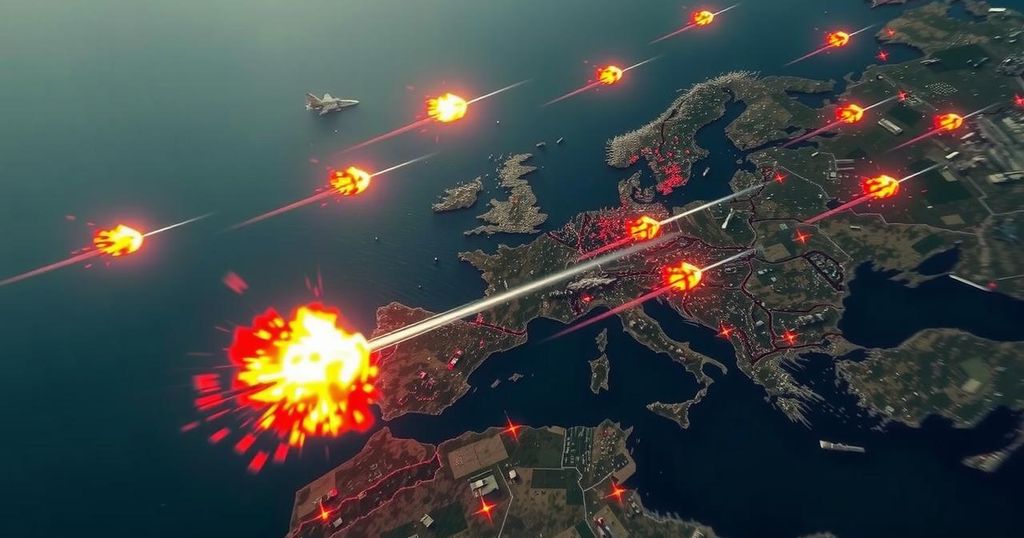Casualties Rise as Israeli Air Strikes Intensify in Gaza and Lebanon

Recent Israeli air strikes have resulted in more than 100 confirmed deaths across Gaza and Lebanon, with significant casualties reported among displaced individuals. In Gaza, at least 12 civilians were killed in a strike on a school shelter and over 50 fatalities were recorded in total. In Lebanon, Israeli attacks have resulted in 53 deaths. Calls for a ceasefire have been made amidst escalating military actions and international legal responses are emerging.
Israel has conducted air strikes across Gaza and Lebanon, resulting in substantial casualties. Reports indicate that over 50 Palestinians have lost their lives due to these attacks, particularly in the northern regions of Gaza, where at least 42 fatalities have been confirmed. Furthermore, a tragic strike on a school sheltering displaced persons in Gaza City’s Shati refugee camp resulted in the deaths of at least 12 individuals. In Lebanon, authorities reported that Israeli military actions in the past day led to 53 fatalities and injured 161 others. Additionally, the Israeli bombing near Sidon injured six Malaysian peacekeepers serving in the UN Interim Force, and the recent remarks from Yoav Gallant, the ousted Israeli Defence Minister, suggested the ongoing military engagement could become detrimental for Israel. He expressed uncertainty regarding the potential for influencing Prime Minister Netanyahu to consider a ceasefire. In another significant development, Ireland has announced intentions to support South Africa’s legal action against Israel at the International Court of Justice. Enhancing its military capabilities, Israel has also finalized a $5.2 billion deal to acquire 25 advanced F-15 aircraft from the United States. This situation has incited international attention and concern about the humanitarian crisis arising from the ongoing conflict, alongside geopolitical ramifications related to military engagements in the region.
The context of the conflict between Israel and Palestine has led to repeated cycles of violence, particularly in Gaza, which has been under blockade for many years. The recent military actions, including air strikes, have amplified the humanitarian crisis, resulting in considerable civilian casualties. The dynamics of the region are further complicated by the involvement of Lebanon and broader international responses, including the stances taken by various nations regarding the conduct of hostilities and the ongoing call for ceasefires amid escalating tensions. The international legal implications of these actions also merit attention as countries like Ireland participate in efforts to seek accountability on global platforms.
In summary, the recent Israeli air strikes have resulted in significant loss of life and injuries in both Gaza and Lebanon, illustrating the ongoing severity of the conflict. The international community is taking note, with some countries beginning to challenge Israel’s actions through legal avenues. The potential ramifications of these military engagements, as highlighted by former officials, suggest a complex future for Israel in its military strategy going forward. The urgency of addressing the humanitarian impact is a critical challenge that remains unaddressed amidst the ongoing hostilities.
Original Source: www.aljazeera.com








